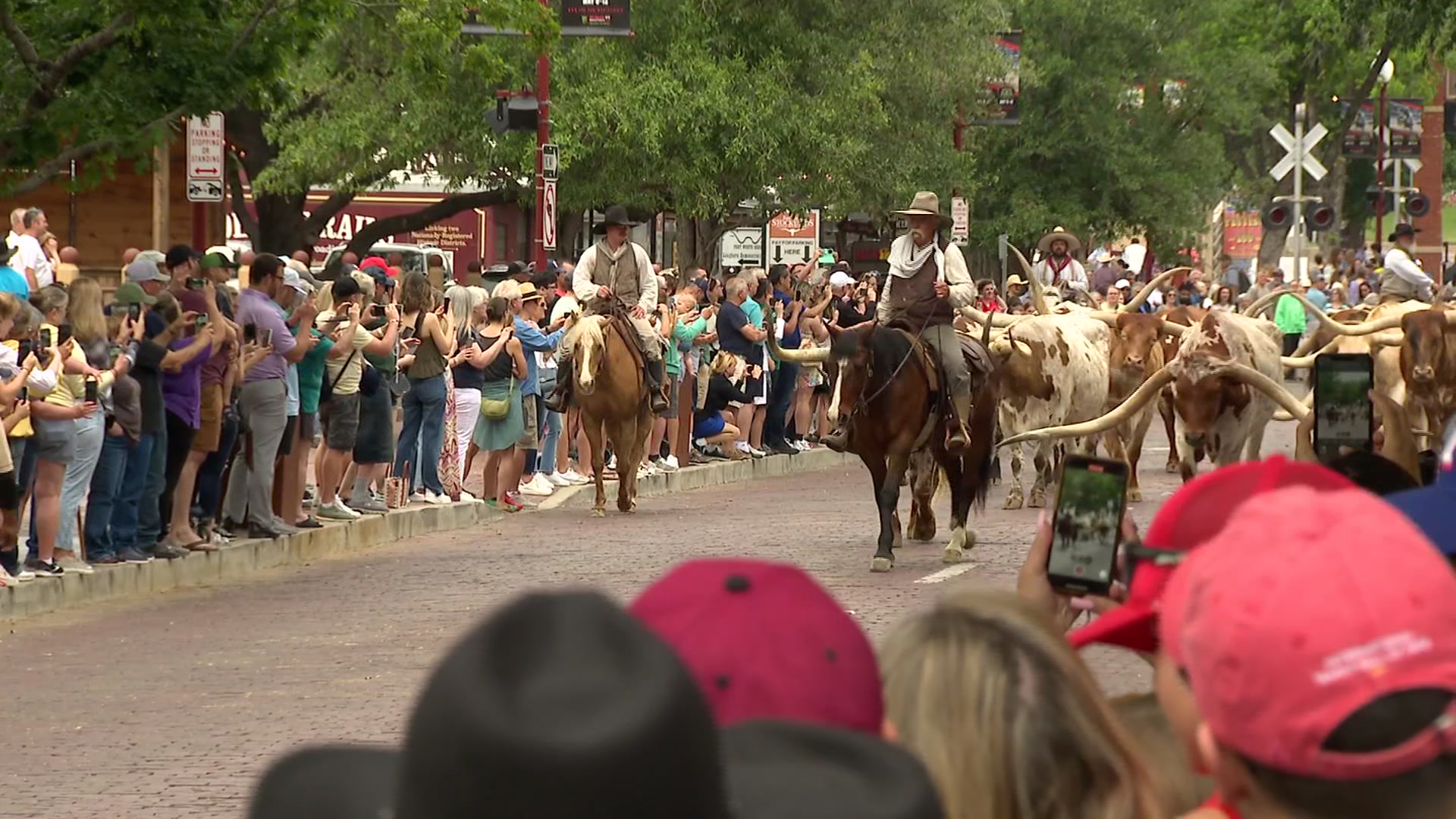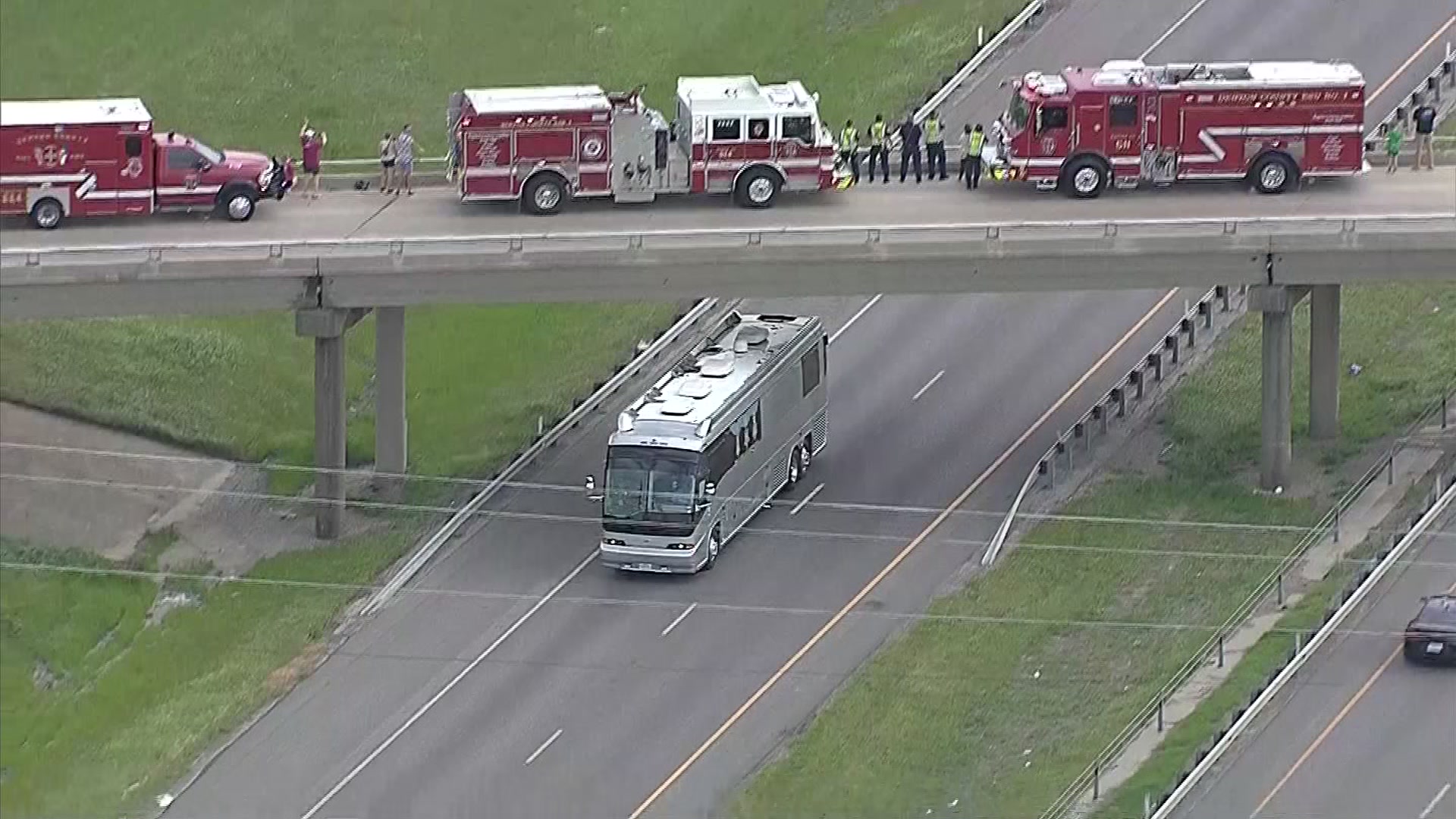A college student from Saudi Arabia charged with attempted use of a weapon of mass destruction made his first appearance at a court in Texas on Friday.
Khalid Ali-M Aldawsari appeared in the U.S. federal court in Lubbock on Friday, flanked by heavily armed U.S. marshals, as seen in the video above.
Aldawsari, who is accused of buying chemicals online as part of a plan to blow up key U.S. targets, including the Dallas home of former President George W. Bush, retained counsel Rod Hobson.
Hobson declined to comment at the courtroom, but later sent a letter reminding Americans that his client is innocent until proven guilty while asserting his concern over Aldawsari receiving a fair trial in Lubbock. (Read Hobson's full letter here.)
"One of the things that makes this country the envy of the world is our legal system with its focus on fairness," Hobson said. "Up to this point, the press coverage has been very one-sided and biased. This may make it difficult for Mr. Aldawsari to receive a fair trial in Lubbock."
In the courtroom, Judge Nancy Koenig asked the 20-year-old if he understands the charges against him and ordered him to remain in custody until an April 11 detention hearing.
Hobson said Aldawsari plans to plead not guilty. Koenig said Aldawsari faces a maximum penalty of life in prison if convicted.
Aldawsari is legally in the United States on a student visa.
Aldawsari mulled attacks for years
Moved by 9/11 and speeches by Osama bin Laden, Khalid Ali-M Aldawsari for years had secretly planned to launch a terrorist attack in the U.S., prosecutors allege.
In his journal, the college student from Saudi Arabia who studied chemical engineering in Texas described a plan to travel to New York City, place bombs in several rental cars for remote detonation and leave the vehicles in different places during rush hour, according to court documents released Thursday.
Local
The latest news from around North Texas.
"After mastering the English language, learning how to build explosives and continuous planning to target the infidel Americans, it is time for jihad," or holy war, Aldawsari wrote in the journal, according to the documents filed by prosecutors.
"As we lay out in this affidavit, there were a range of targets being contemplated," Robert Casey, the FBI special agent in charge of the case, said. "I can't speak to his state of mind or the priority in his mind of any of the range of targets we think we discovered."
Aldawsari studied chemical engineering at Texas Tech University until January before transferring to a nearby community college to study business.
The White House said President Barack Obama was notified about the alleged plot before Aldawsari's arrest.
Telephone numbers that Aldawsari had provided to others were not working Thursday. No one answered the buzzer or a knock on the door at the address listed as Aldawsari's apartment near the Texas Tech campus.
The case outlined in court documents was significant because it suggests that radicalized foreigners can live quietly in the United States without raising suspicions from neighbors, classmates, teachers or others. But it also showed how quickly U.S. law enforcement can move when tipped that a terrorist plot may be unfolding.
"We think we have neutralized any other threats or imminent harm surrounding the actions that he's charged with, but the investigation is continuing," Casey said.
Aldawsari wrote that he was planning an attack even before coming to the United States on a scholarship, the court documents say. He said he was influenced by bin Laden's speeches and he bemoaned the plight of Muslims.
Federal authorities said they learned of the plot after a chemical company, Carolina Biological Supply of Burlington, N.C., reported $435 in suspicious order by Aldawsari to the FBI on Feb. 1.
Separately, Con-way Freight, the shipping company, notified Lubbock police and the FBI the same day with similar suspicions because it appeared the order wasn't intended for commercial use. Within weeks, federal agents had traced Aldawsari's other online purchases, discovered extremist posts he made on the Internet and secretly searched his apartment, computer and e-mail accounts and read his diary, according to court records.
Neighbors in Lubbock said they didn't remember seeing Aldawsari but noticed an unusual number of people in the hallway the day of his arrest.
"That's so scary," said Sally Dierschke, a 21-year-old senior at Texas Tech. "That's my neighbor. ... Of course, I'm scared."
Ahmid Obaidan, a senior at Tennessee State University who also is from Saudi Arabia, met Aldawsari in Nashville, Tenn., when Aldawsari was studying at an English language center at Vanderbilt University.
"He was quiet. I thought he was a good guy," Obaidan said.
The FBI said the North Carolina company reported the attempts to purchase 1.3 gallons of phenol, a chemical that can be used to make the explosive trinitrophenol, also known as TNP, or picric acid. Aldawsari falsely told the supplier he was associated with a university and wanted the phenol for "off-campus, personal research," according to court records. Frustrated by questions, Aldawsari canceled his order and later e-mailed himself instructions for producing phenol, the documents say.
TNP, the chemical explosive that Aldawsari was suspected of trying to make, has approximately the same destructive power as TNT. FBI bomb experts said the amounts in the Aldawsari case would have yielded almost 15 pounds of explosive. That's about the same amount used per bomb in the London subway attacks that killed scores of people in July 2005.
Prosecutors said that in December, he bought 30 liters of concentrated nitric acid for about $450 from QualiChem Technologies in Georgia, and three gallons of concentrated sulfuric acid that are combined to make TNP. The FBI later found the chemicals in Aldawsari's apartment as well as beakers, flasks, wiring, a Hazmat suit and clocks.
A Saudi industrial company, which was not identified in court documents, was paying Aldawsari's tuition and living expenses in the United States.
Casey declined to go into why the arrest occurred when it did.
"We just felt it was the right time," he said.



